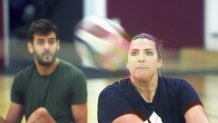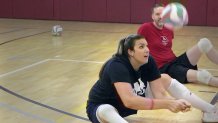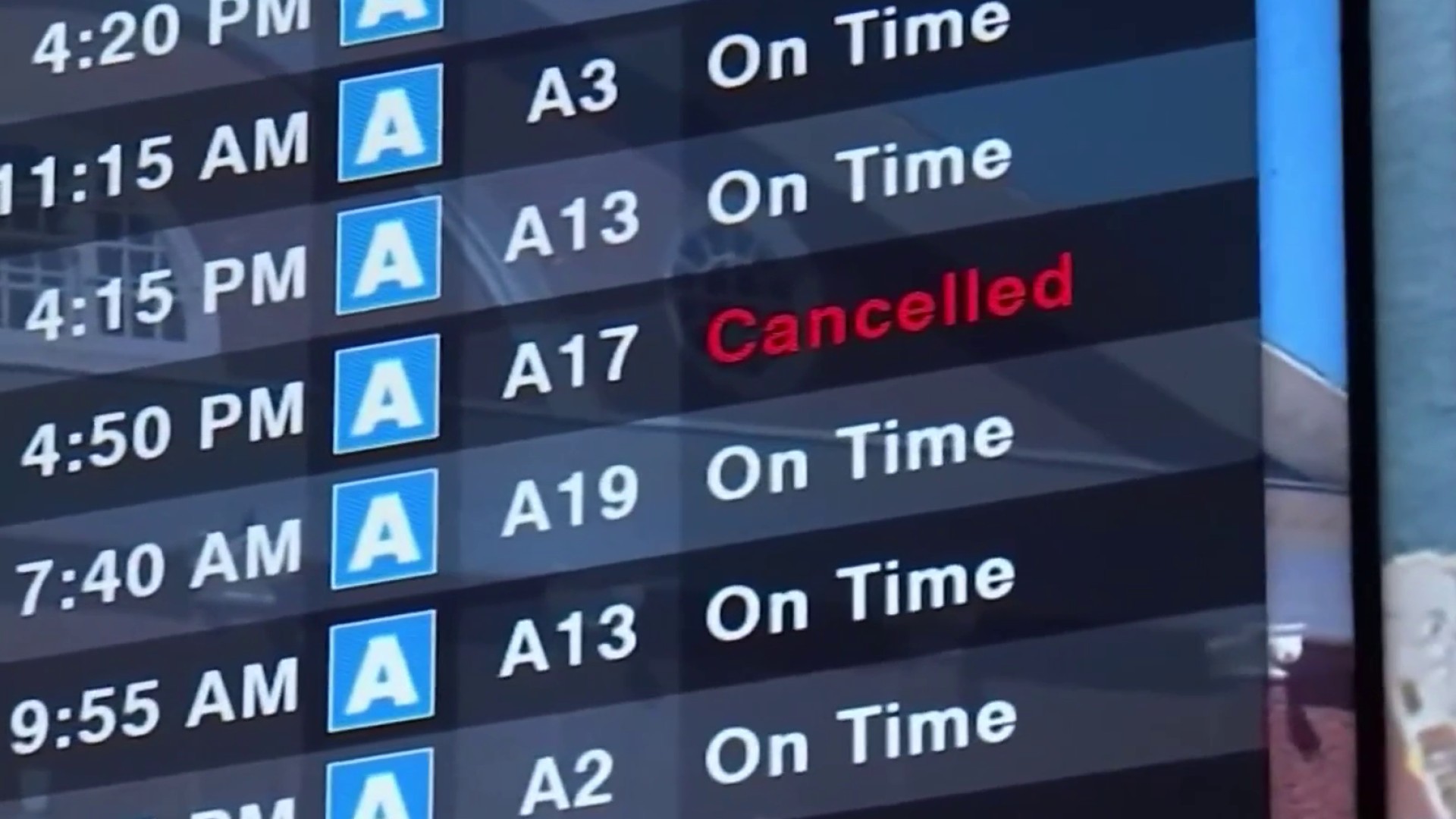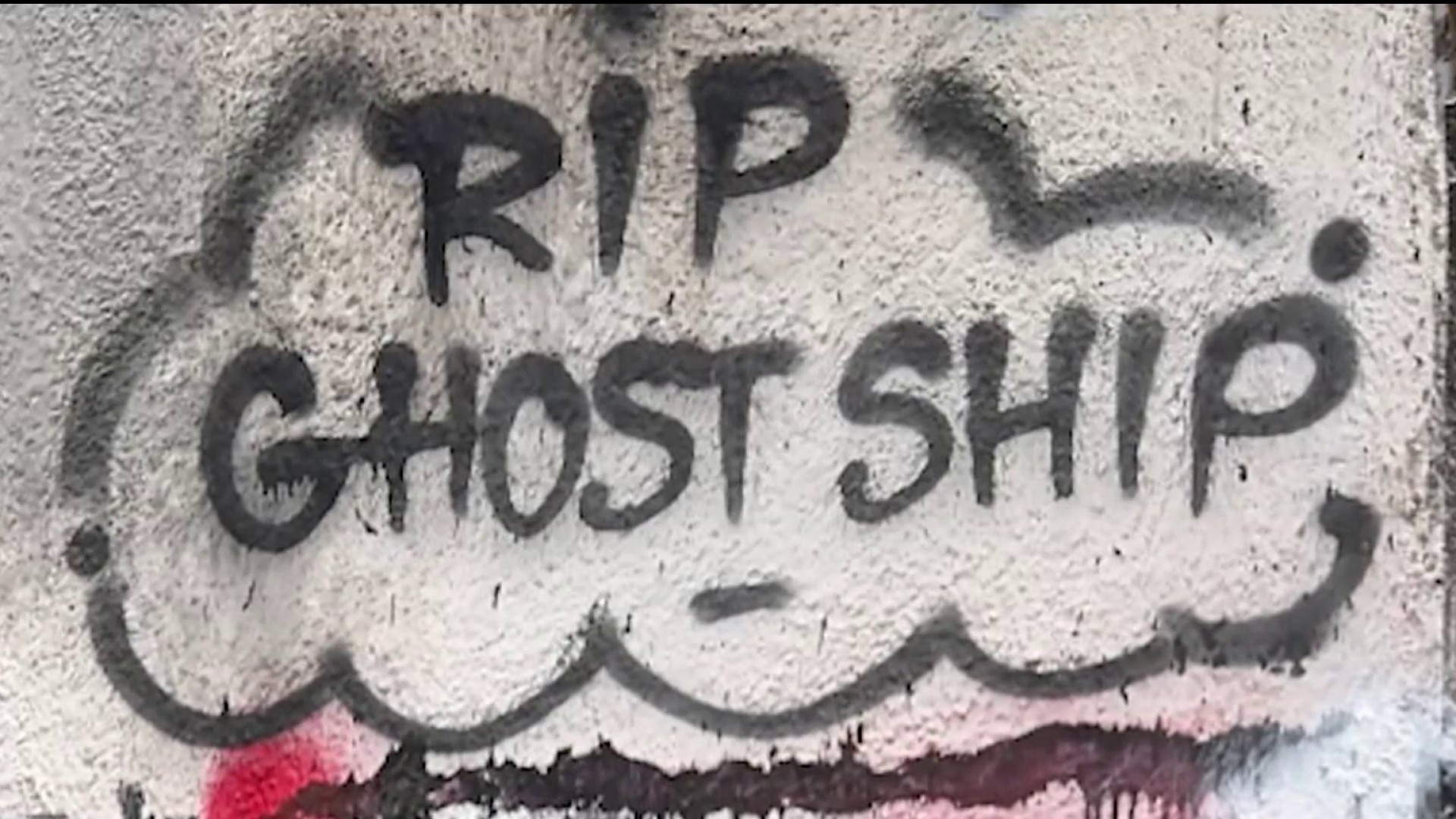With just under a year to go before the start of the 2024 Paralympic Games in Paris, Katie Holloway Bridge was sitting on the floor of a Menlo Park gymnasium, casually swatting volleyballs as if they were flies.
The urgency of the coming Paralympics was not a new feeling for Holloway Bridge — Paris will mark her fifth as a Paralympic competitor in the sport of sitting volleyball — where she hopes to add more medals to a collection that already includes two gold and two silver.
“For me it’s just about enjoying the journey this round,” she said.
Holloway Bridge is training for her Paralympic run at the Riekes Center for Human Enhancement in Menlo Park, a multi-disciplined facility where people can train in athletics, learn to play the piano or even how to repair a car. The center’s unusual nurturing rhythms seemed to suit Holloway Bridge’s own holistic approach to fitness.
“The fact there are so many people here doing things that they love,” Holloway Bridge said, “makes that environment so much more inviting to me.”
Finding comfort in her surroundings has always been a priority for Holloway Bridge. She was born without a femur bone in her right leg and her parents opted to have her foot amputated when she was two years old. When she discovered sports a couple years later, she saw them as a great equalizer and dove in.
“I very quickly learned that I was different through my disability and sports always felt like home for me,” she remembered. “I was able to fit in with the rest of the kids.”
With the aid of a prosthetic leg, she joined the school softball team and played basketball so proficiently she signed a letter of intent with Cal State Northridge and became the first female amputee to play divisional basketball in NCAA history.

The first time Holloway Bridge ever played what would be considered a disabled sport came in 2006 when she was invited to a training camp for the Paralympic volleyball team, a sport where competitors play sitting down. She joined the team and never looked back.
Get a weekly recap of the latest San Francisco Bay Area housing news. Sign up for NBC Bay Area’s Housing Deconstructed newsletter.
Local
“When I found sitting volleyball and my teammates, I became a whole person,” she said. “I learned of other women like myself that were amputees — that loved themselves as a disabled athlete.”
Her first Paralympic Games was 2008 in Beijing. She followed it up with trips to London, Rio and Tokyo. But the accolades and medals seem to come in a solid second place compared to the achievement of recently giving birth to her child.
“This has definitely been the biggest transition in life,” she said, “becoming a mom.”
The Riekes Center where Holloway Bridge has shaped her athleticism was founded by former Stanford football player, the late Gary Riekes who while recuperating from a serious back injury began offering fitness training at his home. The front porch of his original house now sits in the forty thousand square foot industrial warehouse space — as a touchstone for Rieke’s original ethos of inclusivity.

Visitors to the facility are greeted with warm encouraging smiles and urged to pursue their unique interests within the center, whether it’s athletics, industrial arts, music or even nature studies. Olympians, pro football players and even top tier musicians have honed their crafts within the center’s warren of rooms.
“One of our values at the center is no label, no limits,” said executive director Mark Newton. “We look at the person, who they are and don’t put labels or limits on what they’re trying to achieve.”
Among the walls covered with photos of the many people who’ve circulated through the center, hung a framed volleyball jersey worn by Holloway Bridge in one of her Paralympic Games.
It’s a reminder to Holloway Bridge that somewhere in her busy Paralympic life, she settled into a new comfort zone where sports no longer became her way of finding equal ground in the world.
“It’s not about proving people wrong,” she said, “but being happy and healthy in your own skin.”



